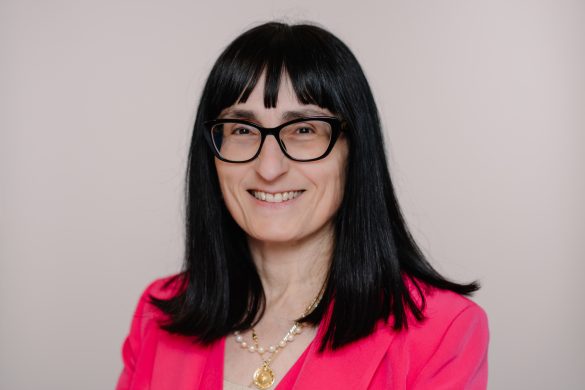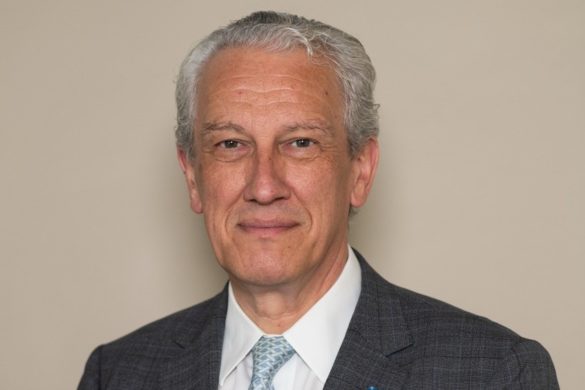by Claudio Bassetti, EAN President
Dear EAN Members, dear friends and colleagues,
Anyone who has been paying close attention to the EAN over the last six months or so will have noticed that advocacy has become a major watchword for us. With so many programmes and projects already up and running to directly support our profession in educational and scientific terms, the time has now come for us to also turn our attention to broader objectives.
Our mission has always been to “reduce the burden of neurological diseases” and this gives us a brief, not only to empower neurologists to provide better services, but to work in any way possible to help to smooth the pathway towards better brain health for the wider population. As a pan-European organisation, representing a vast network of professional organisations–and with strong connections to patient groups–we are in a unique position to use our influence at a political level to push for higher standards of care and advocate for a greater focus on brain health in public health programmes…for there is no health without brain health!
You might have noticed us introduce our new focus on advocacy during our 2021 Virtual Congress, when we broadcast a series of four EAN Advocacy Talks (all of which are freely available to watch online). One of these talks was on the topic of brain health. This set the stage for us to embark with this kind of public-facing activity. In moving forward, our primary emphasis will be on operating at the European level and trying to promote brain health as a priority, linking to EU health policies and leveraging EU cooperation and programmes, where possible. Therefore, the next step we took, which will have been noticed by far fewer people, was to recruit an advocacy official to work with the EAN Administration as a permanent full-time representative in Brussels. Our new team member began her work for us in August this year and I am pleased to say that we are already reaping the benefit of her hard work and invaluable experience.
Our view is that the global and European discussions which are focused on Covid and the attention it has brought to mental health needs to be broadened to brain health. Mental health is taking centre stage at present, for obvious reasons, but the challenges of dealing with Covid have led to diminished resources in many other spheres of healthcare, including neurological disorders. Projections show this will surely increase. So, we must act now. This is why EAN will be promoting a Brain Health Strategy with an equal emphasis on prevention, as well as treatment and care, as the latter alone will not contribute to decreasing the burden in years to come.
We are currently working to organise an event in Brussels in the spring of 2022, to coincide with the French presidency of the Council of the European Union. The event will launch the EAN Brain Health Strategy. We will bring in international, European and national level speakers and experts working on brain health to generate discussion not only on the importance of brain health as a public health priority, but also on the relevance of Brain Health for socio-economic impact as Europe builds back better, focusing on the resilience and adaptability of its people and workforce. We want to build a consensus on why action is needed now and we want countries in Europe to develop and implement national strategies by adopting the framework provided by the EAN Brain Health Strategy
A global action plan is scheduled to be published by the WHO in May 2022, and one of its targets will be for countries to launch national strategies. Some European countries, such as Norway, already have brain health strategies in place, while others like Germany, Poland, and Spain, are considering programmes or actions in the future. One of the aims of our proposed event will be to bring these countries together to share their experiences and to motivate other countries who have not yet started down this path. For this and other countries intending to adopt a more disease-specific approach, the EAN Brain Health Strategy will offer a la carte solutions, all with the ultimate aim of contributing to the WHO action plan.
Although the WHO action plan is yet to be finalised, the EAN has taken a first step to rally support from national neurological societies. To this effect, EAN will soon publish a joint communiqué in which national neurological societies pledge to cooperate across borders and health systems, sharing resources and good practice to contribute to the implementation of the WHO action plan. Already, 30 national neurological societies have signed. I would like to make an appeal for a final push to get all 47. If you hold an official position within your own national neurological society, please use your influence to help us present a united front!
Once signed, the communiqué will be published and highlighted to the WHO. But we also hope this exercise will inspire national societies, bringing them together to share and exchange areas of expertise, research, continuous medical education and training, as well as data resources, to help each other to achieve the targets set in the WHO action plan.
EAN’s role is to serve as a powerhouse and tap into our connections, reaching out to health authorities and national societies. We bring together 47 national neurological societies; we can speak on behalf of diverse subspecialty societies; and we can draw on an excellent relationship with EFNA, representing patients. Speaking as one voice representing more than 400 neurological diseases is crucial for us to succeed in our mission to prioritise and ensure the organisation of national healthcare systems for delivery on neurological disorders and brain health. This is the advocacy goal of the OneNeurology initiative which we co-founded with EFNA. As such, we hope to create the necessary pathway of communication from patients to neurologists, to neurological societies, to governments.
This is the essence of EAN advocacy as we see it. I very much look forward to seeing how our plans develop and, of course, to updating you on our progress and outcomes.
Best wishes
Claudio Bassetti, EAN President









